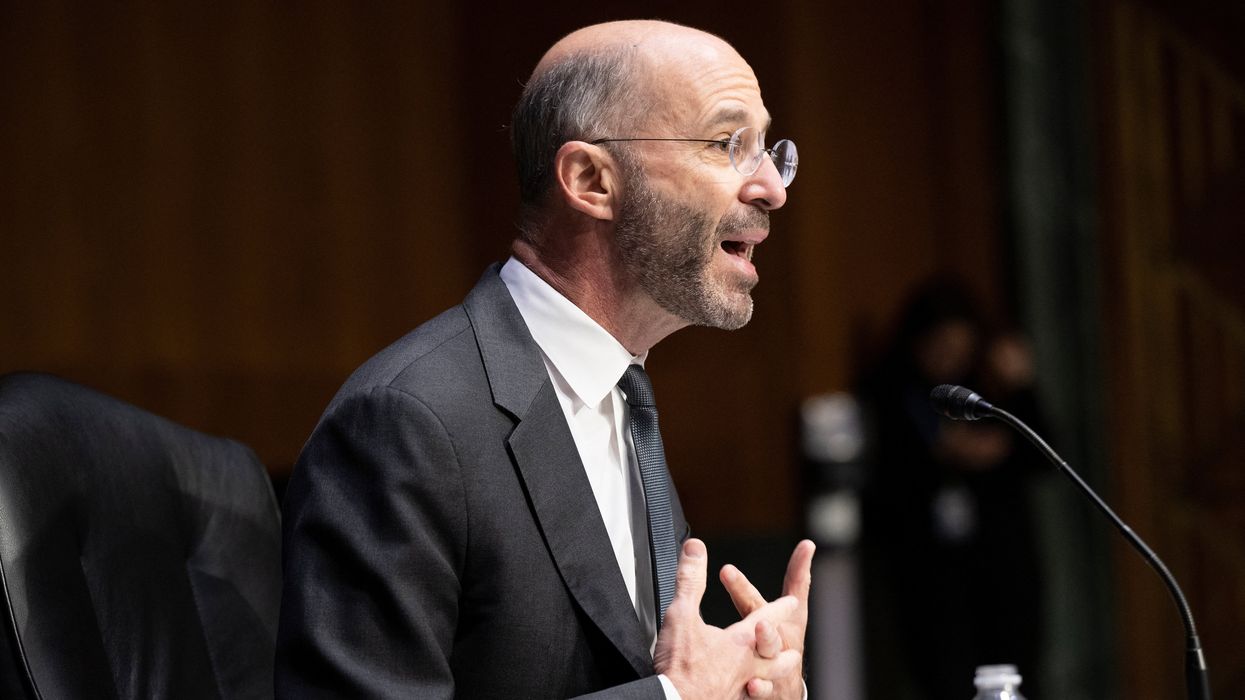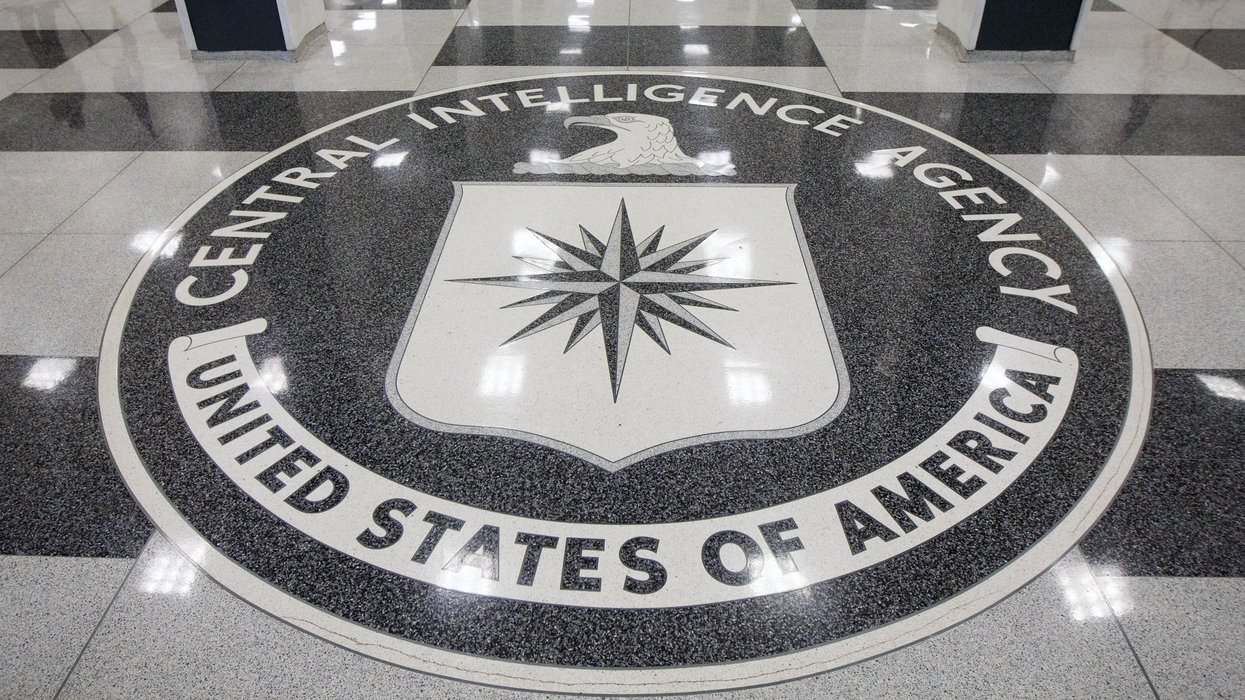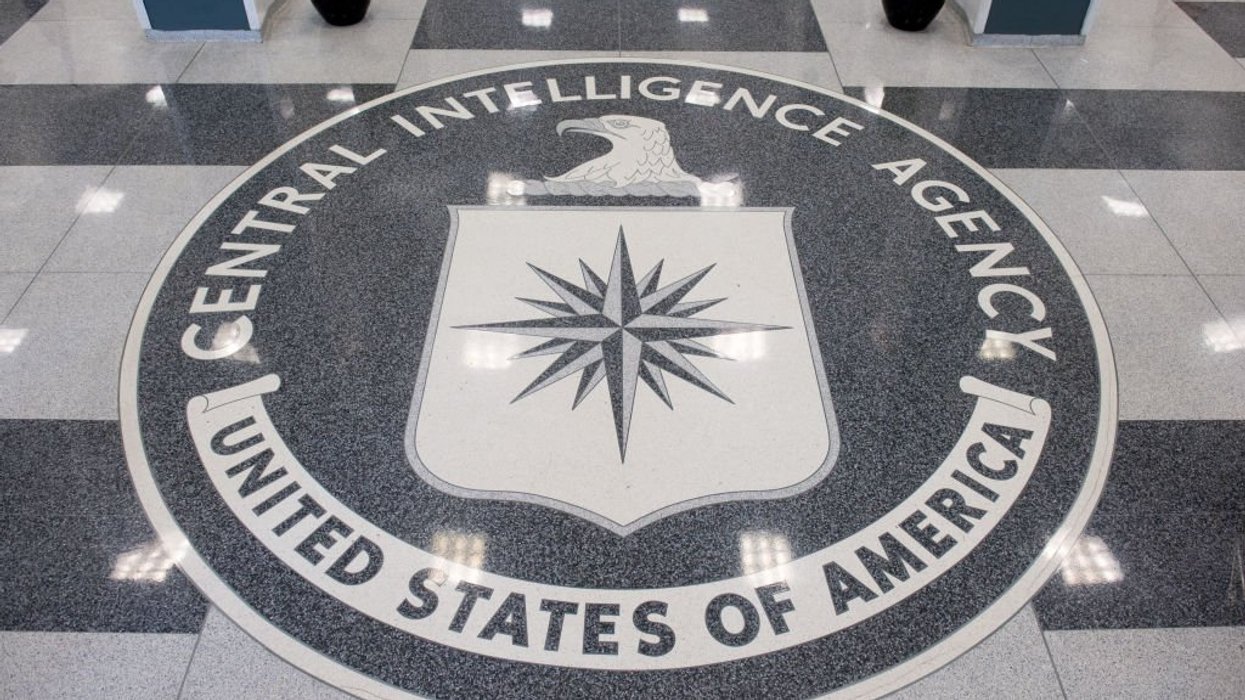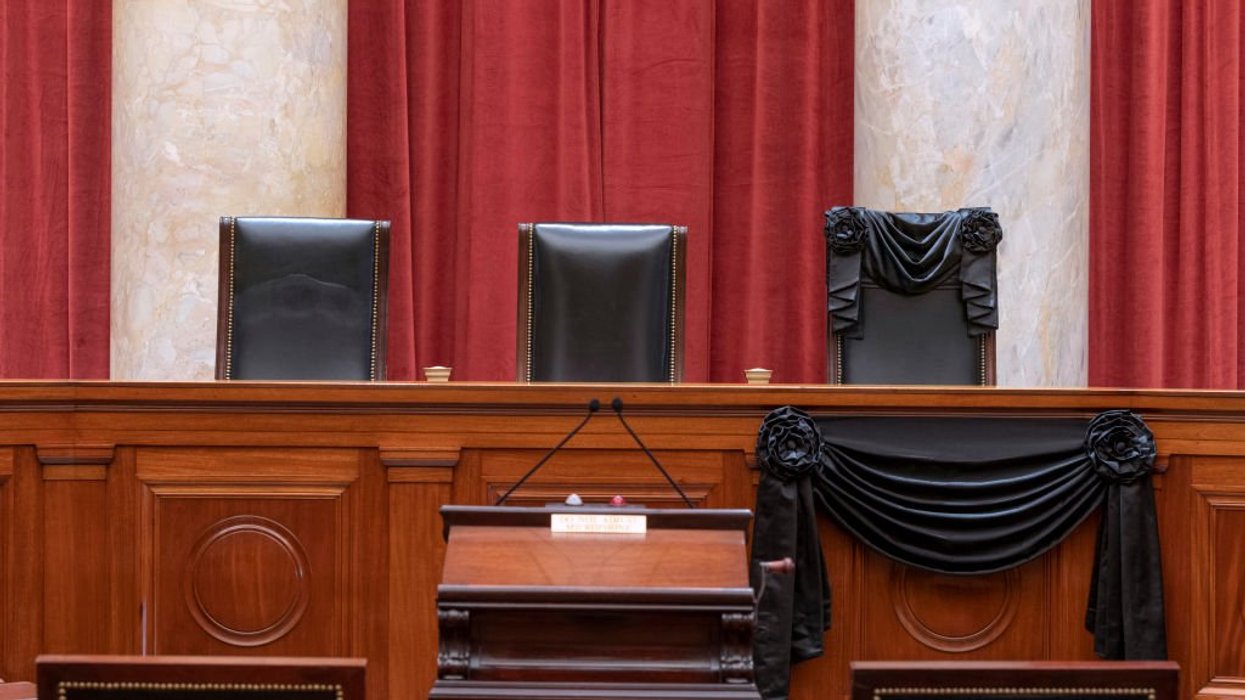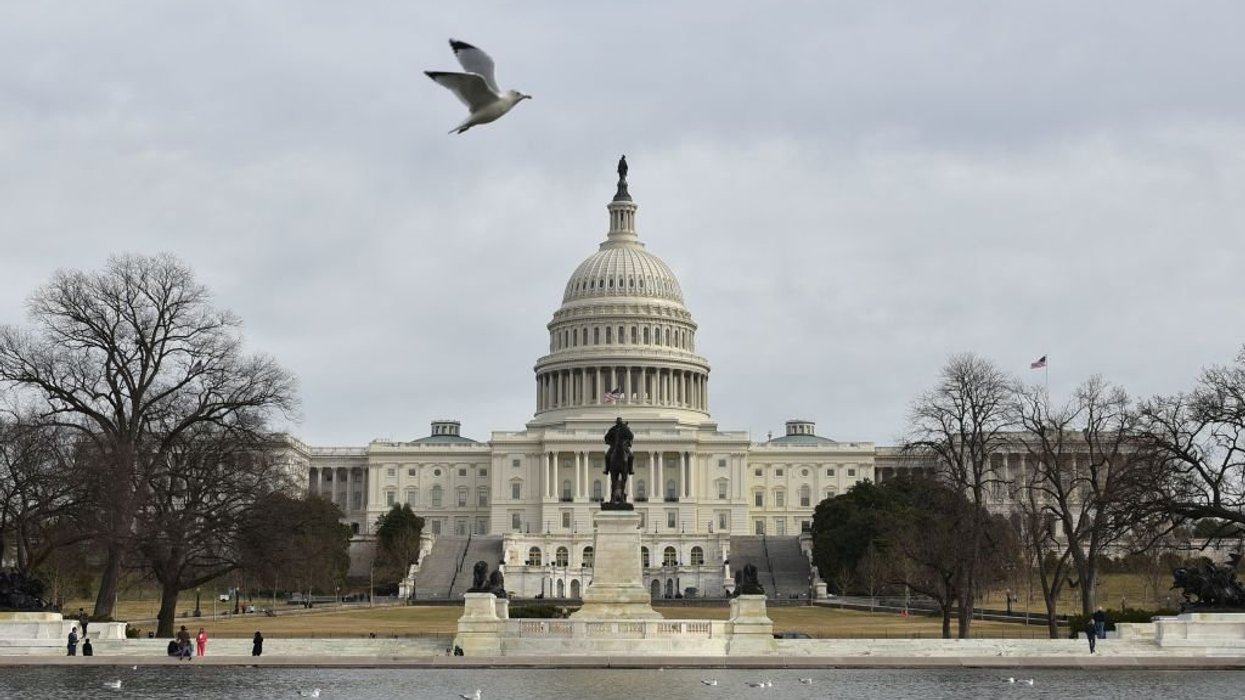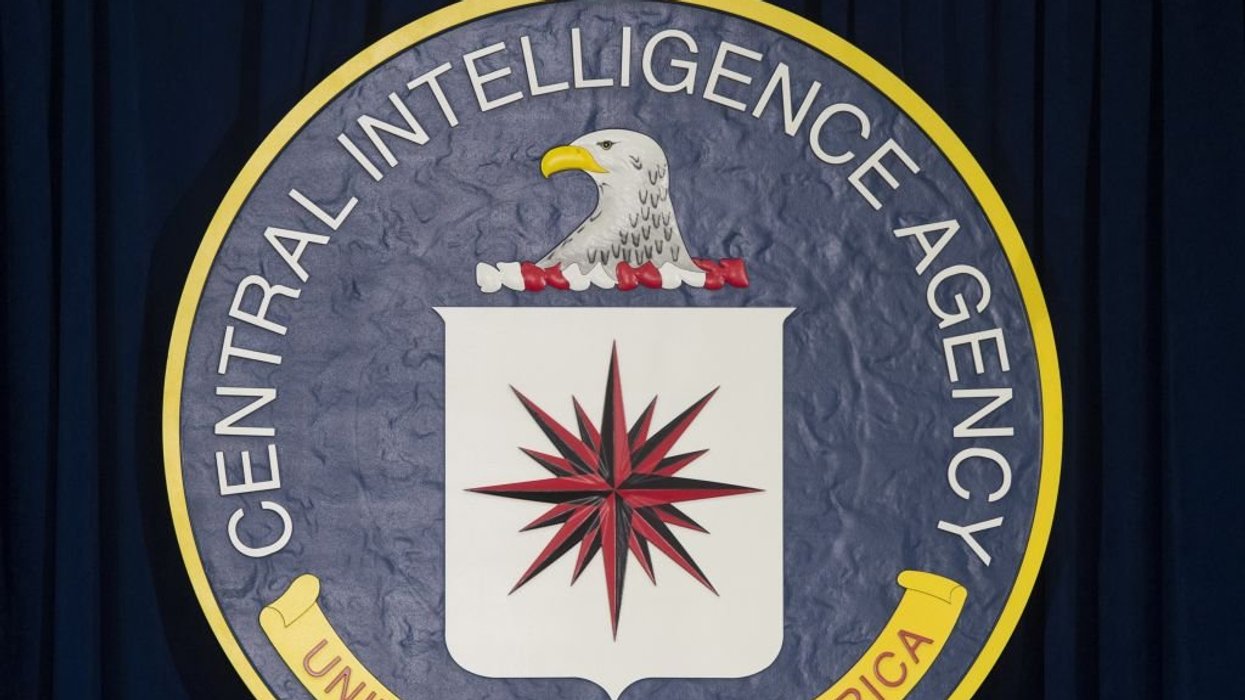It was the best of times, it was the worst of times on radio this morning. Moments after playing the inspiring audio from Denzel Washington, Glenn played another commencement speech. But rather than deliver an uplifting and inspiring message, Michelle Obama fanned the flames of racial tension.
GLENN: Now, the worst of times. Here is -- and I just want to emphasize, the woman who is married to the most powerful man in the world, the First Lady of the United States of America.
MICHELLE: Because while we've come so far, the truth is that those age-old problems are stubborn. And they haven't fully gone away. So there will be times, just like for those airmen, when you feel like folks look right past you. Or they see just a fraction of who you really are. The world won't always see you in those caps and gowns. They won't know how hard you worked and how much you sacrificed to make it to this day.
PAT: Now, she's speaking to an all-black audience. And speaking of black airmen from Tuskegee about them. And, of course, this never happens to white people. White people never get looked beyond. Everybody always knows how hard a white person has worked. Everybody always knows that. Right? Just amazing.
GLENN: Listen to this list, and tell me this doesn't apply to white people as well.
MICHELLE: The countless hours you spent studying to get this diploma. The multiple jobs you worked to pay for school. The times you had to drive home and take care of your grandma. The evenings you gave up to volunteer at a food bank or organize a campus fundraiser. They don't know that part of you. Instead, they will make assumptions about who they think you are, based on their limited notion of the world.
PAT: Jeez. Wow.
MICHELLE: And my husband and I know how frustrating that experience can be.
GLENN: Can I ask you, Mrs. Obama, the First Lady of the United States of America, who is of a race that is 11 percent of the population. So you were clearly not voted in with just your race, white people in droves went out to vote for you, and you were somehow or another invisible so much that you became the president and First Lady of the United States of America.
PAT: Twice.
GLENN: Tell me about the troubles that you have seen. I mean, it's just remarkable to me. Remarkable. Now, I'm not going to play anymore -- you want to play more?
PAT: There's a lot here. We haven't even gotten to the part where she talks about Baltimore.
GLENN: Well, play the Baltimore part. I can't take --
PAT: Yeah.
MICHELLE: We both felt the sting of those daily slights throughout our entire lives.
GLENN: Stop.
PAT: Nobody else has. No white people has felt that sting. Nobody.
GLENN: No Hispanics. No whites. No Indians. Nobody else. And if you want to say that the Native Americans have felt it and the Hispanics have felt it, but the whites have never felt it. I mean, the conservatives have never felt it. The jobs that we -- that we are suddenly bypassed for because we're conservative. Because of our viewpoint. The religious that are mocked on a daily basis and belittled. Yeah, we've never felt that. We don't know what it's like. Okay. All right.
PAT: And, again, First Lady of the United States of America.
GLENN: Yeah. I'm not comparing -- I'm not comparing what anybody has gone through. The same as slavery. Or the same as what Martin Luther King went through. But we're not the country of Martin Luther King's time anymore. We are being dragged back to those days. And the proof is in the pudding when she starts talking about Baltimore.
MICHELLE: -- cross the street in fear of their safety. The clerks who kept a close eye on us in all those department stores. The people at formal events who assumed we were the help. And those who have questioned our intelligence, our honesty, even our love of this country.
GLENN: Oh, my gosh.
PAT: And why do people do that? We've questioned their honesty and integrity over and over again because of their actions.
GLENN: Because they lie.
PAT: Their honesty is in question because they've lied to us over and over again --
GLENN: And I want to make sure it's very, very clear. When we say "their honesty," we're not talking about black people. We're talking about this particular black person and her husband.
PAT: The Obamas. Yes.
GLENN: And we would question them like we do the Bushes. Like we do with the Clintons. Like we do with the Huckabees. Like we do with -- who else has been on our -- on our list of people to really question? Soros.
PAT: Harry Reid.
GLENN: Harry Reid. Lindsey Graham. John McCain.
PAT: They're liars.
GLENN: Liars.
PAT: And we've proven it over and over again. Now, love of country. That's based on your comments. On your actions. On the history of who you are and what you've done your whole lives.
STU: In the middle of the speech where she's essentially boiling her country down to a place that follows black people around in department stores and executes them as they cross the street, of course, we don't think you like this place. Look at the way you talk about it. You describe it as a horror show.
PAT: Right. She's the one who said, we have to change our history. We have to change our culture. We have to change where we are.
GLENN: Her husband said we have to have a fundamental transformation. I've pointed this out before. You don't go to the Mona Lisa and say I want to fundamentally transform this painting. You say, I want to restore it to its original beauty.
PAT: You don't go to the love of your life -- your wife or husband and say, hey, I really love you, but I want to fundamentally transform everything you are.
GLENN: Everything about you. It just doesn't happen.
MICHELLE: I know that these little indignities are obviously nothing compared to what folks across the country are dealing with every single day. Those nagging worries that you're going to get stopped or pulled over for absolutely no reason.
GLENN: Stop. I want -- I just want you to make a note of what she's saying here. What she's saying here is, you as a black person, you're invisible -- think of this, you're invisible when -- when you want a job or you want to do something, nobody will even see you. But because you're black, you're super, super visible when you're in a store or when you're driving. And they're going to stop you for no reason whatsoever. And you have a justified concern of being stopped for no reason whatsoever. Just make note of what she's saying. Because she's about to get to Baltimore.
MICHELLE: Feared that your job application will be overlooked because of the way your name sounds. The agony of --
GLENN: Like Barack Hussein.
STU: When you're trying to lead the world with a name --
GLENN: While we're at war with a guy named Hussein.
STU: And Osama, which is one letter away of his last name.
PAT: How does she get away with this? How does she get away with a speech like this! It's unbelievable.
GLENN: Nobody's willing to say it.
STU: It's laughable. Can we at least put this into context one more time? All of these things, in the middle of all these things, describing the worst country you've ever heard of in your entire life, she complains that people continually think that she doesn't love the country.
PAT: And it's because she's black that they do that.
STU: It's not because you're black. It's because you keep saying this. This is the only way you ever describe the nation you live in. Of course, people think you despise it.
PAT: Every time.
GLENN: But she thinks -- she's saying that it's only because I'm black that they would question.
STU: Right. And it's not that at all. When you're asked to talk about your country, this is what you do.
PAT: Virtually every time.
STU: You point out every horrible thing that's ever happened and you act like it happens all the time.
PAT: Would anybody question if she loves this country if she would get up and say, and leave it at this, look, I know the country has problems. It always has. And it probably always will. But, look, I -- we -- I and my husband are the first couple of the United States of America where we belong to a group that's 12 percent of the population. And we were elected president and first lady of the United States.
GLENN: So don't get discouraged. Don't get down. You can make it.
PAT: Nobody has done that in the history of the world. But we have gotten there.
GLENN: These two people --
PAT: Jeez.
GLENN: I truly believe, in the history of all mankind, they may go down as at least top ten, maybe top five of people who had the biggest opportunity in the world, in all of history to change things for the better.
PAT: Uh-huh.
GLENN: And they decided to go the other way. They could have changed race relations forever. And they took us back to the 1960s. On grudge politics.
STU: If you played this in a documentary from the 1960s, this speech --
PAT: It would be totally appropriate.
STU: You would have no idea that this country elected a black person. You would have no idea that we made any progress at all. This is boilerplate nonsense from the 1960s.
GLENN: Yes, it is.
MICHELLE: Sending your kids to schools that may no longer be separate, but are far from equal. The realization that no matter how far you rise in life, how hard you work to be a good person, a good parent, a good citizen, for some folks, it will never be enough.
PAT: Wow.
MICHELLE: Those feelings are real. They're rooted in decades of structural challenges that have made too many folks feel frustrated and invisible. And those feelings are playing out in communities like Baltimore and Ferguson and so many others across this country.
PAT: Wow. Wow.
GLENN: So she's saying -- she is saying that the reason why Baltimore is on fire is because people are feeling invisible. They feel like they can't -- they're not being heard. They're not being seen. And she's saying, it's not just that those feelings are real. She's saying, in the beginning of this speech, in the beginning of this paragraph, that that is the truth. So it's one thing to say, you know, I know how you feel. But let me tell you the reality. The reality is, things are getting better. You're not invisible. I'm the First Lady and the president of the United States is my husband. You can make it in this country. Look, the struggle is not gone. The struggle is still there. But you can make it. You can make it. And the worst thing to do is riot in the streets. She's saying the opposite. I know what you feel because I felt it, and even I'm the president's wife and I still feel invisible. I feel like we're not being heard. And so it's -- it's not only your feeling. I validate your feeling. I'm here to tell you, it is happening. And that's why people are rioting in the streets. She is encouraging this kind of behavior.
STU: Yeah. And, first of all, taking something that was real in the 1960s and rehashing it now as if it's still the truth. Honestly, wouldn't you ask, why the hell would you love that country? If that country is real in 2015, I don't love it.
PAT: It sounds terrible.
GLENN: I don't want to live -- I wouldn't be proud of the United States of America if we were doing what we did in Selma, Alabama.
STU: No.
GLENN: I would not be proud of that country.
PAT: The most ironic bit of this is it happened in Tuskegee University.
GLENN: Oh, my gosh. Booker T. Washington is spinning in his grave like a lathe. If you've ever read Up from Slavery, that is one of the greatest men to ever live in America.
PAT: It's the opposite of everything he stood for, believed, and advocated.
GLENN: Absolutely. But I doubt they even teach that anymore.
PAT: I bet not.
GLENN: I bet that's so lost. Even now, if you buy Up from Slavery, the copy that I have, I have an original copy. You go back and you read the -- the new versions, the version I have, the preface is from like some Harvard know-it-all that says, we're not even sure that any of this is even real.
PAT: What?
STU: What do you mean?
PAT: Are they saying he didn't write that?
GLENN: We think that this is mostly made up. He wasn't really a slave.
PAT: What! Oh, my gosh.
STU: Trying to discredit him.
GLENN: Yeah. To totally discredit him now.
PAT: Wow.
GLENN: And he is one of the greatest voices. Every child, black, white, brown, doesn't matter, every child should read Booker T. Washington Up from Slavery. Should know who Booker T. Washington is. Should emulate his actions and his life. That guy had more answers in his pinkie than everybody in Washington has today.
STU: This is sort of separate. We say this many times though that the suspicion is, of many, that she's actually more radical than he is.
GLENN: Yes.
STU: Michelle is more radical than President Obama. This is an interesting piece of this. Because he's been criticized by some in the black community for using the word thug to describe Baltimore and some of these other riots. He's been out there actually using that word. Which MSNBC is calling the new N-word. The President of the United States is using that word to describe some of these people. That's not the vibe here. There's an obvious separation -- either he's completely lying when he's using that because he's using it for some political purpose, or they are at odds on this position.
GLENN: I have a feeling that their upstairs talk is very contentious. I have a feeling -- I don't know whether he believes it or what. But she does believe it. And he's probably saying to her, I'm the president. You don't know what I'm dealing with here. And he may actually believe it. But he's trying to walk a more fine line that she doesn't have to walk.




